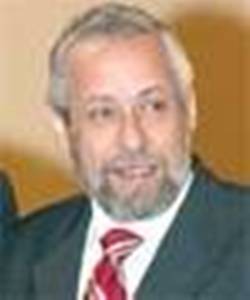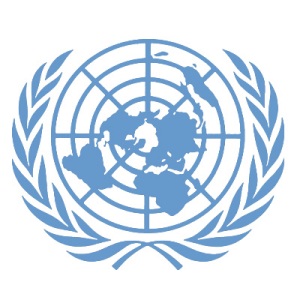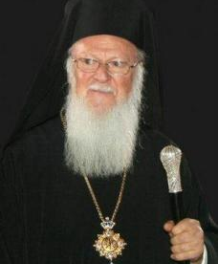Συνάντηση Υψηλού Επιπέδου για την Κουλτούρα της Ειρήνης – Εκπροσώπηση της Ελλάδας από τον Υφυπουργό Εξωτερικών κ. Θ. Κασσίμη
Τον παραδοσιακά ηγετικό ρόλο της Ελλάδας στο διάλογο μεταξύ θρησκευτικών δογμάτων και ιδιαιτέρως μεταξύ Ισλάμ και Ιουδαϊσμού, επεσήμανε ο Υφυπουργός Εξωτερικών κ. Θεόδωρος Κασσίμης, απευθυνόμενος στη Γενική Συνέλευση του ΟΗΕ ως εκπρόσωπος της Ελλάδας στη διήμερη Συνάντηση Υψηλού Επιπέδου που διεξήχθη στην έδρα των Ηνωμένων Εθνών στη Νέα Υόρκη, στις 12 και 13 Νοεμβρίου, με θέμα την Κουλτούρα της Ειρήνης.
Σκοπός της Συνάντησης, η οποία πραγματοποιήθηκε με πρωτοβουλία της Σαουδικής Αραβίας και με συμμετοχή 16 αρχηγών κρατών και κυβερνήσεων, Υπουργών Εξωτερικών και άλλων αξιωματούχων, είναι η περαιτέρω ενδυνάμωση της παγκόσμιας κίνησης για μία κοινή κουλτούρα της ειρήνης σε συνέχεια της τήρησης του Διεθνούς Έτους για την Κουλτούρα της Ειρήνης το 2000. Υπενθυμίζεται ότι το σχέδιο με τίτλο «Towards a culture of peace» εξετάστηκε από τη Γενική Συνέλευση στην πεντηκοστή και την πεντηκοστή πρώτη συνεδρίασή της, ενώ στην πεντηκοστή τρίτη συνεδρίασή της, η Γενική Συνέλευση κήρυξε την περίοδο 2001-2010 ως τη Διεθνή Δεκαετία για μία Κουλτούρα της Ειρήνης και τη Μη Βία για τα Παιδιά του Κόσμου και υιοθέτησε τη Διακήρυξη και το Πρόγραμμα Δράσης για μία Κουλτούρα της Ειρήνης.
Ο κ. Υφυπουργός, συνεχάρη τη Σαουδική Αραβία για την πρωτοβουλία της, συντάχθηκε πλήρως με την τοποθέτηση του Alain Jupe, ειδικού απεσταλμένου του Γάλλου Προέδρου και προεδρεύοντος της Ε.Ε κατά την τρέχουσα περίοδο και μετέφερε τη βούληση της Ελλάδας να συμβάλει με κάθε μέσο σε μια στενή και αποδοτική συνεργασία προς την κατεύθυνση της εγκαθίδρυσης πανανθρώπινων αξιών. Οι αξίες αυτές είναι κοινές σε όλα τα θρησκευτικά δόγματα, τα οποία κηρύσσουν την αγάπη, την αδελφοσύνη, το σεβασμό και την ειρηνική συνύπαρξη, σημείωσε ο κ. Κασσίμης, υπογραμμίζοντας τη σημασία της ενημέρωσης για τα πραγματικά μηνύματα των δογμάτων, μέσω μιας εκστρατείας σε μεγάλη κλίμακα.
Ο κ. Κασσίμης αναφέρθηκε επίσης στην ελληνική πρωτοβουλία με τίτλο «Χτίζοντας το Μέλλον», στο πλαίσιο της οποίας, 20 παιδιά ηλικίας μεταξύ 12 και 14 ετών, από την Αίγυπτο, την Ιορδανία, τη Συρία, την Παλαιστίνη, το Ισραήλ και την Ελλάδα, πέρασαν μαζί τρεις εβδομάδες, σε καλοκαιρινή κατασκήνωση στην Ελλάδα. Τα μηνύματα από αυτήν την πρωτοβουλία ήταν μηνύματα ενότητας και αγάπης, τόνισε ο κ. Κασσίμης και έκλεισε την ομιλία του αναγνωρίζοντας τις προκλήσεις για την επιτυχία του εγχειρήματος της «Κουλτούρας της Ειρήνης», επισημαίνοντας, όμως ταυτόχρονα, ότι «είμαστε όλοι παιδιά του ίδιου Θεού».
* * *
Μετά το πέρας της ομιλίας του, ο κ. Κασσίμης, απευθυνόμενος σε εκπροσώπους των ΜΜΕ, χαρακτήρισε «πολύ ενδιαφέρουσα» την πρωτοβουλία του βασιλιά της Σαουδικής Αραβίας και της Γενικής Συνέλευσης για αυτό τον διάλογο για τον πολιτισμό και τη θρησκεία.
Σημείωσε ότι όλοι οι ομιλητές αναφέρθηκαν στις παρεμβάσεις τους στην ανάγκη που υπάρχει για διάλογο και κατανόηση, ώστε να σταματήσουν τα κέντρα βίας και τρομοκρατίας στον κόσμο.
Παράλληλα, τόνισε τις πολύχρονες προσπάθειες της Ελλάδας για την προώθηση του διαλόγου για τη θρησκεία και τον πολιτισμό, με δράσεις που έχει αναλάβει στην περιοχή της Μέσης Ανατολής, «ώστε να δημιουργηθούν γέφυρες ανάμεσα στις διάφορες θρησκείες, με στόχο την ειρήνη και την κατανόηση».
Αναφερόμενος σε αυτές τις προσπάθειες, ο κ. Κασσίμης υπογράμμισε τη συνάντηση που θα πραγματοποιηθεί το επόμενο έτος στην Αθήνα για την Ορθοδοξία και το Ισλάμ και στις πρωτοβουλίες της υπουργού Εξωτερικών για συνάντηση νέων της περιοχής, την καλοκαιρινή κατασκήνωση με παιδιά από την Ελλάδα, την Αίγυπτο, την Ιορδανία, το Ισραήλ και την Παλαιστίνη. Όπως τόνισε ο κ. υφυπουργός, «τα παιδιά έκαναν το δικό τους διάλογο. Είναι καιρός το ίδιο να κάνουν και οι ενήλικες».
ΟΛΟΚΛΗΡΗ Η ΟΜΙΛΙΑ ΚΑΣΣΙΜΗ ΣΤΟΝ ΟΗΕ
 63rd Session of the General Assembly of the United Nations
63rd Session of the General Assembly of the United Nations
48th Plenary Meeting Culture of Peace
Statement by
H.E. Mr. Theodore Kassimis
Deputy Minister of Foreign Affairs of the Hellenic Republic
Mr. President of the General Assembly,
Mr. Secretary General,
Majesties,
Excellencies,
Ladies and Gentlemen,
I am really pleased to commend, today, from this forum, Saudi Arabia's present initiative on inter-religious dialogue, launched under the auspices of H.M. King Abdullah bin Abdulaziz al- Saud. Greece allies herself with the statement already made by Alain Jupe, special envoy of the President of the French Republic on behalf of the EU. For Greece, it is very much a vindication of her own policies in this field, as she was among the very first countries in the West, to open concrete channels of communication and dialogue with the Muslim world, even before World War II.
Such dialogue is maintained at many levels. As a State, Greece keeps numerous and well-established bilateral contacts and is a party to many multilateral fora, within the United Nations system, in the European Union and OSCE, and also in specific activities, such as the Alliance of Civilizations.
However, it is at the level of institutions of faith that Greece and the Greek world enjoy a really privileged position, thanks to the crucial role, in both Ecumenical and inter-religious dialogue, played by the ancient Churches of the Greek world. Indeed, although most of them are incorporated under the laws of the lands in which they are established, they are very much at the root of modern Greek culture and civilization.
Such a background was essential for the Greek world to establish a leading position in the dialogue with Islam and Judaism, thanks to the continuous interaction with both, for almost two thousand years, the lack of a colonial baggage in its history and a deep understanding and respect of the mentality of the peoples of the area.
At the same time, we are well aware of our position in the Western world. Democracy is very much Greece's own contribution to European and Western civilization and the later Greek world has been a major contributor to the fashioning of Roman law and Christian ethics. We thus cherish the community of our values, with other societies that have been formed in the same ethical and philosophical matrix.
We also know most these values to be largely common with those of our Muslim and Jewish partners and neighbours. Under this light, the Saudi Initiative on Interfaith Dialogue is most welcome. We look forward to a close and fruitful collaboration, in this context, one to which Greece and Europe will contribute what they have achieved over the years, especially in defining human rights and in incorporating them in their legal systems. And indeed, we hold freedom of religion and worship, together with freedom of thought and expression, to be at the very foundations of our philosophy on life and on the position of Man in the Universe.
Apart from dialogue, however, we need to embark on a large-scale campaign for religious education. We need to inform our peoples about the true message of our respective religions.
We live in a materialistic era, where some are attempting to uproot the eternal and universal values of our societies. This has given the opportunity to certain forces to violently alter the values of Faith and to substitute them with messages of hate and division.
There is, however, no religion, no religious figure, nor any sacred script that preaches hatred among people. On the contrary, the Divine commandment common to all our faiths, is a message of love, solidarity, peaceful coexistence and respect of all the people on Earth. This has to be the message of our dialogue, and it is with this message that our children should be brought up.
18 months ago, in an attempt to build bridges of peace and cooperation in our region, we launched an initiative called "Building the future". We organized, in Greece, a summer camp for children of age 12 to 14, from Egypt, Jordan, Palestine, Israel and Greece. 20 children from each of these countries participated.
Boys and girls. Muslims, Jews and Christians, lived together for three weeks. We did not allow anyone to poison them with false messages. We left them by themselves, armed with the religious beliefs they had from their parents, their pure souls and their passion to enjoy life. These children developed a dialogue of their own. Through their games, the traditional dances of their homelands, the artwork which they crafted together and the happiness that showed on their faces.
The outcome of their dialogue could be seen when the time came to bid farewell, and is reflected in the letters sent by their parents.
Our dialogue here is a more difficult one. We have to fight the forces of hatred and division. I am certain that if we all pull together and believe in this common cause, we shall emerge as victors. For world peace, solidarity and mutual understanding. So that we may be able to prove what our respective faiths teach us:
That we all are children of the same God.
Thank you Mr. Chairman.



















